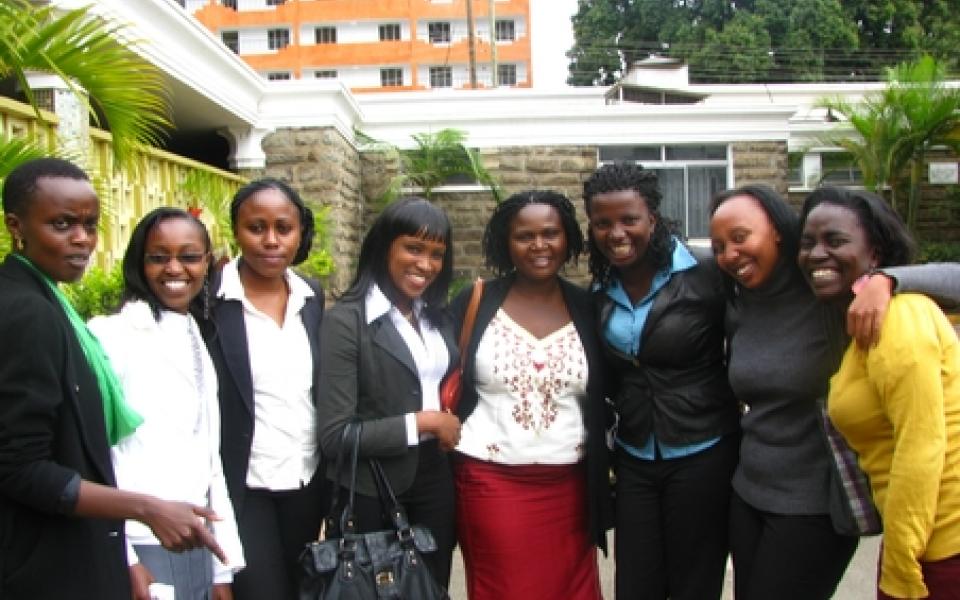
Despina Namwembe, the Women’s Initiative Coordinator for Africa, travelled to Kenya and met with Nyambura Mundia, the Administrator of URI Africa, Kate Kiama, YLP youth ambassador, Rattan Channa, URI GC Trustee and other women from the different disciplines at the end of June. The visit was part of URI’s Women’s Initiative, a pilot program launched in March this year.
On the first day of their visit, Despina and Rattan facilitated an informational meeting and brainstorming session with a team of religiously diverse professionals and human rights advocates in Nairobi. Despina shared all that she had learned during her visits to Rwanda, Burundi, DR Congo and Uganda and then opened up the meeting for discussion.The conversation that followed centered on the most pertinent issues negatively impacting women in Kenya which included violence against women, religious extremism, child labor, trafficking, ethnic tensions and prostitution. At the end of the meeting, the women decided to form a URI Women’s Initiative steering committee to strengthen the work being done to address these grievous challenges.
After the meeting in Nairobi, Despina, Nyambura and Aziza Mohammed headed to Kibera: Africa’s largest urban slum. Kibera is home to nearly 1 million of the 2.5 million people who live in Nairobi slums.This community faces a number of challenges. Structural barriers that inhibit equal access to education, in combination with Kibera’s staggering unemployment rate of 50%, create little opportunity for financial stability or prosperity. These bleak economic circumstances force many women into prostitution and social inequalities sometimes incites youth to join Al-Shabaab, a militant Islamic group. Additionally, poor sanitation makes residents of Kibera vulnerable to disease and opportunistic infections, the prevention and healing of which is inhibited by the privatization of water and substandard health care.
In Kibera, Despina and Nyambura joined ten women community leaders and single mothers for a day of discussion. Gender inequality, sexual violence, reproductive rights and disease control were some of the main topics of conversation at the gathering. The Kibera women identified the issues that they want to address and brainstormed ways that they could increase their participation in intervention efforts. Aziza Mohamed a vibrant woman leader in this area works with these women on a daily basis. “I want to give a positive image to my faith by contributing positively to the community here” she says. This group of single mothers who are knowledgeable about creating small businesses, taking care of orphaned children and mentoring girls decided to apply to become a URI Cooperation Circle.
In the coming weeks, Despina will be looking at the best way to connect women from Kenya, Burundi, Uganda, DRC, Rwanda, and Southern Sudan, to build capacity and support the programs they offer.
Issues affecting women in African countries are similar. The primary difference is the goodwill (or lack of it) in the leadership, the structure and systems around governance, the means of enforcing laws, and the relationship with the local community.
Despina has observed that women’s roles in Africa are changing. On a daily basis, women trying to create a more productive environment – one that focuses on uplifting their entire communities - rather than bringing attention to their individual situations. For example, Jane from Southern Sudan said “Although I was battered by my former husband and almost died, this gave me courage to work even harder so that other women will not go through the hardships I faced.” Most women consider every child in their village to be their son and daughter.
